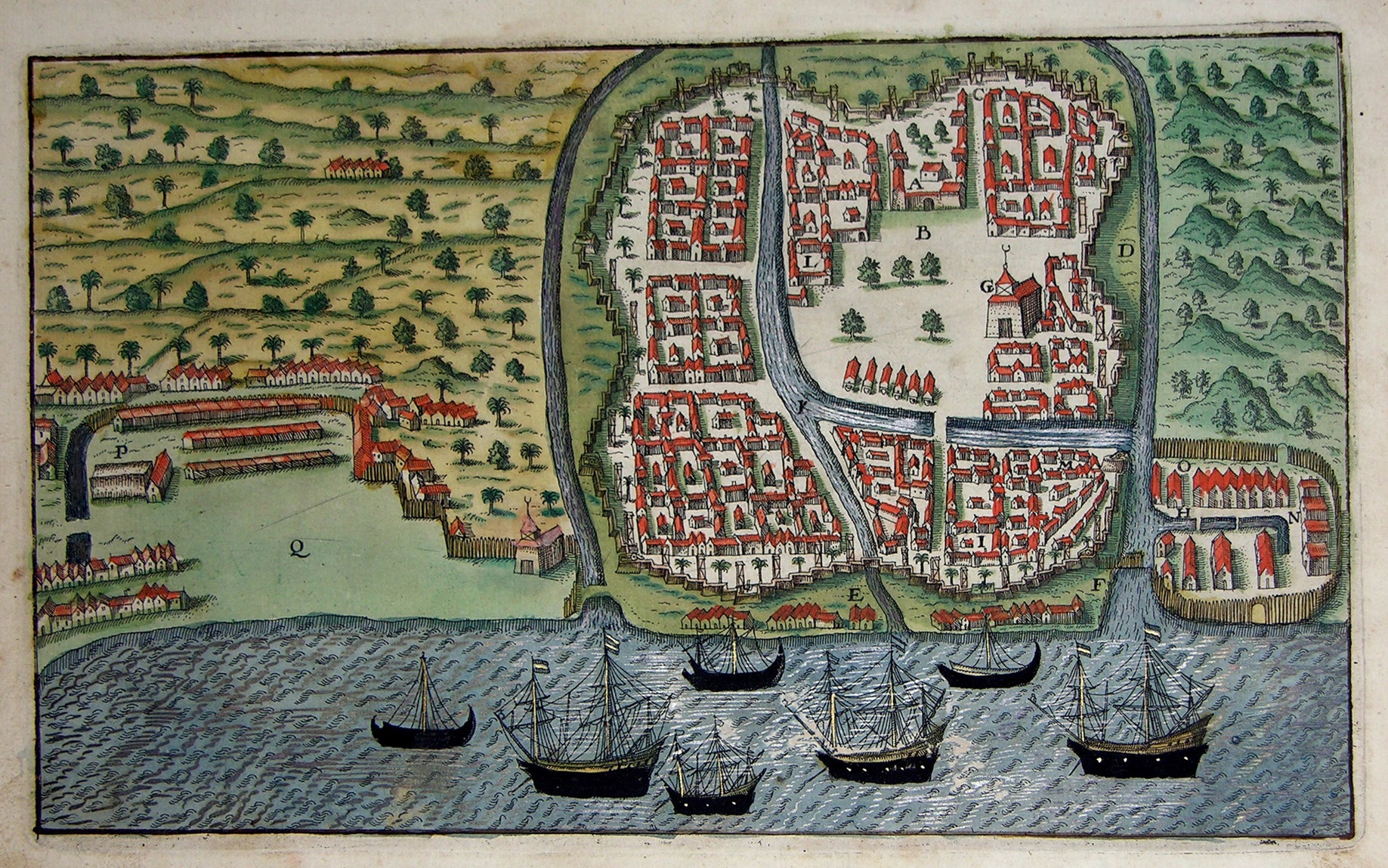In the previous post we discussed the very beginnings of the British East India Company (EIC). While in the later years, this company would have a massive impact on history, it is important for us to look at the very first voyage and how it was perceived by the other players, like the Portuguese who already had trade links established with East Indies (Modern day Indonesia).
Esteemed Gentlemen,
I write to you with great anger and frustration regarding the recent attack on our carrack Sao Thome by the pirate Englishmen led by James Lancaster. Our ship, which was carrying precious cargo of pepper and spices, was brutally plundered by these English marauders.
The audacity of these Englishmen is astounding. They ambushed us in the Malacca Straits, overpowering our crew with their weaponry and cunning tactics. They showed no mercy, looting our ship and taking our valuable cargo, leaving us in shock and despair.
It is a clear act of piracy, and we demand justice for this heinous act. These Englishmen have no respect for our sovereignty or our trade routes. Their insatiable greed knows no bounds, and they have shown themselves to be ruthless and treacherous.
This incident highlights the ongoing tension between the Portuguese and the Englishmen in these waters. We have long been aware of their desire to challenge our dominance in the lucrative spice trade, and this attack on Sao Thome is a blatant example of their hostile intentions.
We urge you, esteemed gentlemen, to take swift and decisive action against these pirate Englishmen. They must be held accountable for their unlawful actions and made to pay for the damages they have caused. We cannot allow them to continue their acts of piracy and aggression in our waters.
I implore you to take this matter seriously and take appropriate measures to protect our trade routes and preserve our sovereignty. The actions of these Englishmen cannot go unpunished, and we must send a strong message that such acts will not be tolerated.
Yours sincerely,
Pedro Lopes
In 1601, James Lancaster, embarked on a journey that would change the course of history. He set sail as part of the first voyage of the East India Company (EIC) to the East Indies, with a mission to establish English presence in the lucrative spice trade that was dominated by the Dutch and Portuguese at that time. Lancaster’s expedition was a daring endeavor, as he aimed to challenge the Portuguese monopoly and secure a foothold in the highly competitive spice market of the East Indies.
Lancaster’s fleet consisted of four ships – the Red Dragon, the Hector, the Ascension, and the Susan – with a crew of about 400 men. They were set to sail from England in April 1601, but nature had other plans, as the ships stood in the Channel for a couple of months, due to changing wind. After a long and challenging journey, the fleet arrived in the East Indies and made their stop at Acheh, where they established friendly relations with the local Sultans and secured provisions for their journey.
This is where the story gets even more interesting, as we discuss the attack described in the letter above. We certainly cannot dismiss it as James Lancaster and his crew acting rogue, as while they were asked to act ‘Merchant-like’ they were also authorized to indulge in piracy against the Spanish and the Portuguese. After spying on the Portuguese Carrack Sao Thome for a while, Lancaster and his crew ambushed them in Malacca Straits, taking over the pepper and spices it carried.
The raid marked a significant victory for the English, as it established their presence in the East Indies and challenged the Portuguese monopoly in the spice trade.Their loot from this ambush helped them establish the very first factories of EIC, in Bantam on Java and another in the Moluccas.
The successful raid on the Portugues paved the way for future English expeditions in the East Indies and set the stage for the rise of the EIC as a major player in the region. He returned home carrying over 900 tonnes of pepper, cinnamon and clove, most of which was stolen from the Portuguese Carry.
James Lancaster’s first voyage to Indonesia as part of the East India Company’s mission was a historic event that changed the course of history. The Voyage had an outstanding three hundred percent profit. Lancaster’s daring raid on the Soa Thome challenged Portuguese dominance in the spice trade and established English presence in the East Indies, paving the way for the rise of the East India Company as a major player in the region.
NOTE: The letter mentioned in the article is purely fictional, written for artistic reasons and is not a historical record.

Leave a Reply